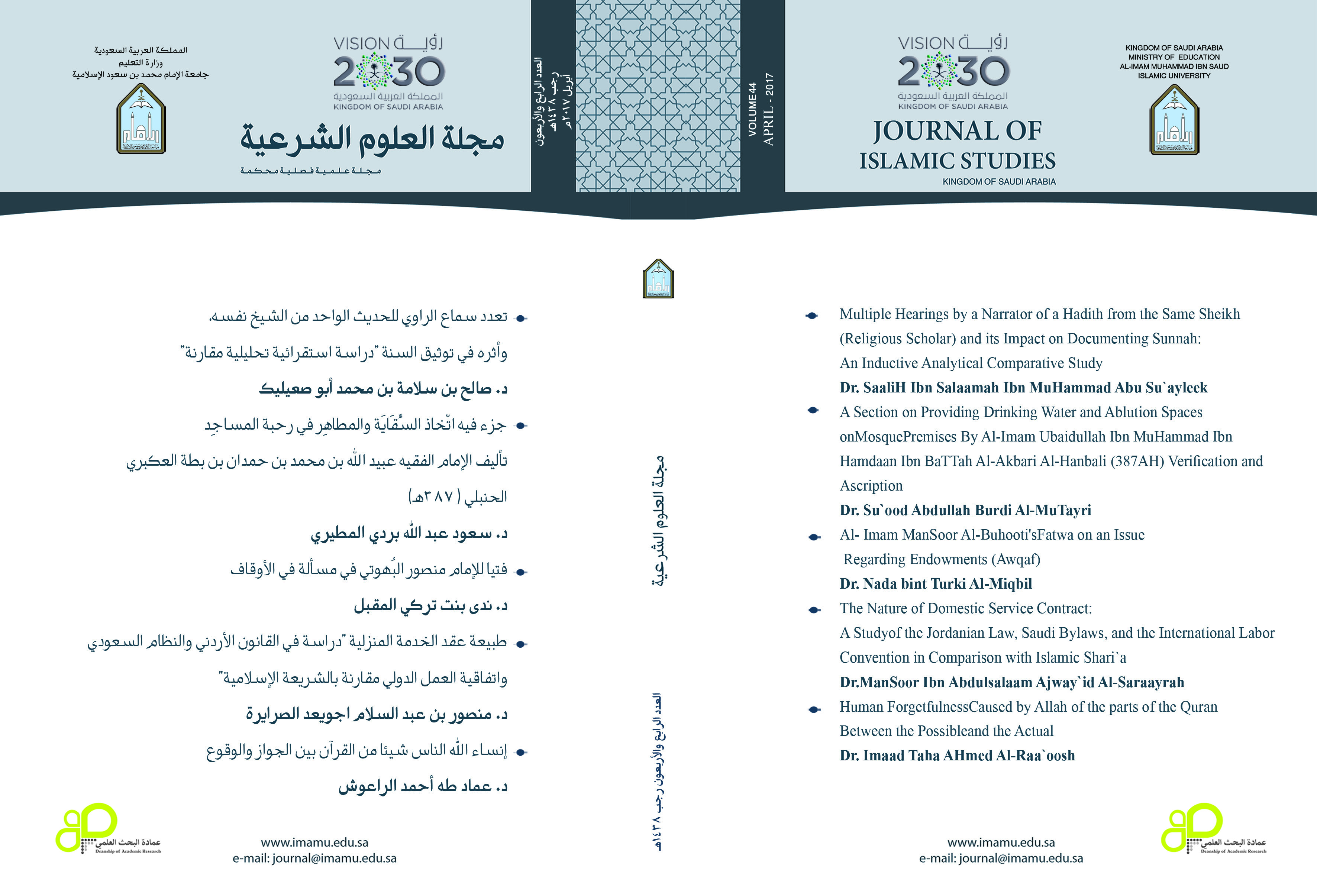Multiple Hearings by a Narrator of a Hadith from the Same Sheikh (Religious Scholar) and its Impact on Documenting Sunnah: An Inductive Analytical Comparative Study
Abstract
Among the means of authenticating texts and their utterances is what is practiced by trustworthy narrators to listen repeatedly to a hadith from the same Sheikh (religious scholar). This is either to ensure that the Sheikh memorizes the hadith by heart, or to affirm the narrator's memorizing. This method has a profound impact on documenting and preserving the Prophetic Sunnah, verifying its utterances. There are many examples and texts showing the interest of reliable and trustworthy narrators in the sessions of their Shiekhs, and the variation in their utterances and narrations by addition or omission in their multiple sessions.
This study aims to show what is meant by this term and this method. It also shows the difference between multiple hearings and similar terms related to it such as text-related appendage, studying the hadiths, and scrutinizing the narrators. Moreover, it throws light on the most prominent narrators interested in multiple hearings, with an indication to their scientific purposes from multiple hearing of hadith. In addition, the core of this research is to carry out an inductive applied study. It covers important aspects showing the positive effects of the phenomenon of multiple hearings on documenting the Sunnah during the age of narration. It also shows the positive effects of multiple hearings on verifying the words of the narrations and accordingly giving preponderance to some of them (Al-TarjeeH); and on revealing the defects (Al-`Ilal) and giving preponderance to some narrations. It is a strong indicator for revealing defects and giving preponderance. This method has also an impact on invalidating (Al-JarH) and validating (Al-Ta`deel) narrators, determining the narrators' status, and differentiating between them.




